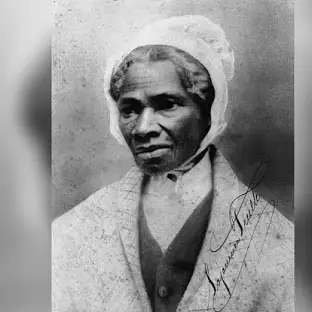In the mid-2000s, whene glossy pop and auto-tuned vocals reigned supreme, Amy Winehouse emerged, bringing with her a raw and unapologetic sound that shook the music industry to its core. Released in 2006, “Back to Black” is not just a Grammy-winning album; it’s her declaration of heartache, addiction, and unfiltered emotion that she’s been feeling. It’s exactly her sensitive and soulful proclamation of hurt and love that has led to the album sitting at number 8 of Apple Music’s 100 Best Albums, where Amy sits alongside a multitude of iconic and life altering artists.
The album cover features Winehouse against a stark black background, the iconic beehive hairdo towering above her head like a crown of defiance. With Winehouse’s piercing gaze daring listeners to look away, you can imagine all of the turmoil and intensity in her feelings that she conveys in this album. Amy’s heartfelt vocals are complemented by the masterful production of Mark Ronson and Salaam Remi. Together, they create something both equal parts gritty and glamorous, capturing the spirit of her thundering life with haunting precision.
Amy Winehouse’s personal struggles with addiction and heartbreak had been made publicly known with or without her permission and “Back to Black” is a defiant response to the pressures of fame and the pitfalls of love that everyone felt so captivated by in her relationship with ex-husband Blake Fielder-Civil. Each of her songs isare a window into her thoughts and memories where we can experience her own bittersweet nostalgia from lyrics coming from “Tears Dry on Their Own” and “Love Is a Losing Game.”
This album unravels all of the intense things you feel when dealing with the loss of a deeply attractive and all encompassing love, building up a crescendo of anguish and longing. What makes this album all the more bewitching is Winehouse’s voice, holding such a devastating effect. Her background in jazz and soul breathe into the listenster with a timeless quality that transcends normal genre boundaries. This album is one her best works as we are finally able to recognize the vast power, tenacity, and talent that she holds within her, cementing her legacy as one of the greatest voices of her generation.
One of my favorite songs from this album is “Back to Black”. This ballad is not only haunting but a tour de force of emotion. She is somehow able to turn heartbreak into a lush and seductively melancholy testament of what happens when you have nothing to go back to after a breakup that is somehow able to linger long after the final notes fade away. When she sings, “We only said goodbye with words, I died a hundred times, You go back to her, And I go back to, I go back to us”, we get the insight of what happens when two people split. A breakup is always concluded with telling the other person goodbye in some form or another, but her lyrics capture the pain of what happens after. Just because you no longer say hello to each other doesn’t mean you’ve let go yet and Amy is brilliantly able to arrest how we feel when our hearts haven’t said goodbye yet but they’ve moved on and you’re left in the dark.
While I am absolutely enamored by the entirety of this album, my least favorite would have to be “He Can Only Hold Her”. Undeniably catchy, this song unfortunately feels somewhat out of place in tone as both her vocals and essence feel almost more pop-ified and glossed over as it channels a time when she’s not completely invested in one relationship as she can’t stop thinking about another. It’s almost as if the song, while still perfectly pleasing, mirrors the situation itself. In comparison to many other great artists of the time and now, Amy stands tall among others such as Adele, Sharon Jones & The Dap-Kings, and Billie Eilish. Each of these individuals represents the power of being vulnerable through your art and the imperfect strength of such sultry and attractive vocals.
Overall, “Back to Black” is a classic that continually resonates with listeners today, her rich and smoky tones stealing the show with every note that has flawlessly stood the test of time. In an era dominated by manufactured pop stars and formulaic hit singles, Winehouse dared to be different in her work with her tragic honesty that has most definitely paid off long after her death. This is more than music, it’s a story about her and the unwavering truth of how much love and hurt she held inside of her, creating one of the greatest albums of the 21st century. It’s for that reason that I would give this album a 10/10.





























